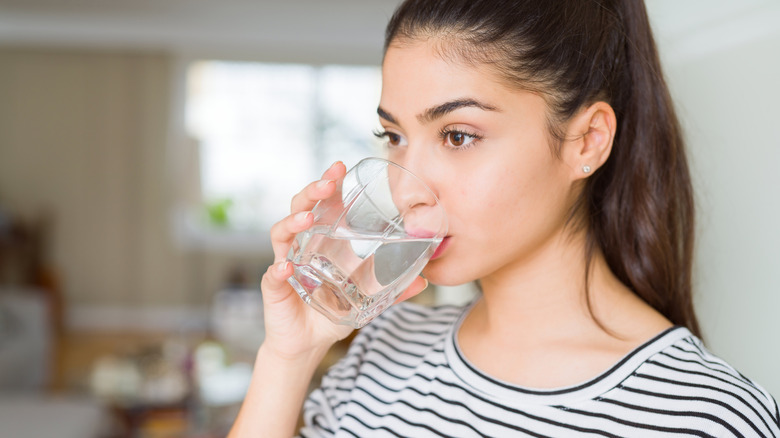Dehydration occurs when your body uses more water than you put in it, thereby depriving your body of the fluids necessary to carry out regular functions. The Mayo Clinic states that anyone at any age can become dehydrated. Symptoms of dehydration include extreme thirst, decreased urination, dark urine, confusion, fatigue, and dizziness. Untreated dehydration can lead to kidney problems and seizures. You can experience different levels of dehydration from mild to severe, but even mild dehydration can affect your brain.
When your brain becomes dehydrated, it triggers several biological responses. If you’re dehydrated, your electrolytes may become imbalanced. In addition, The Healthy explains that dehydration causes blood volume to drop. In fact, not only can dehydration cause the blood volume in the brain to drop, but severe dehydration can even cause the brain to shrink.
Furthermore, when you’re dehydrated, you may be more vulnerable to depression, fatigue, and confusion (via Healthline). All of these conditions can lead to mood changes and cognitive problems, which could further impact your mental health.
Your brain and mood are connected

If dehydration can impact your mental health, then it could also affect your anxiety. Research from a large cross-sectional study from 2024 showed that people who stayed hydrated were less likely to experience anxiety and depression.
Another study from 2024 showed that changing water intake affects mood. For example, people who drank low amounts of water felt better when they increased their water intake, while those who were accustomed to drinking more water felt less calm when their intake was limited. In 2024, researchers explored how hydration affected women, and they discovered that lower intakes of water were linked with higher levels of tension.
The Institute of Medicine recommends men drink about 131 ounces of water and women drink around 95 ounces (per Healthline). This total includes any sources, including food, that include water. That said, you may require more or less water depending on your weight, how much you exercise, outside temperatures, and if you are sick.